CSD Chair Communicates Via Love of Running at Tokyo Marathon
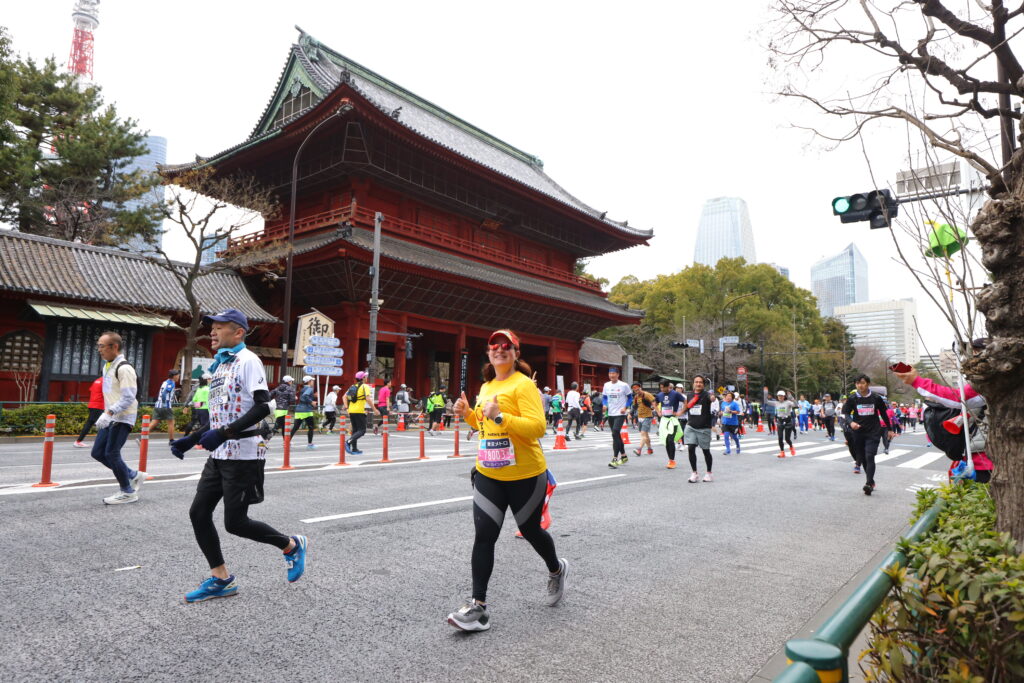
Running the Tokyo Marathon was like no other race Communication Sciences and Disorders Chair and Distinguished Scholar-in-Residence Nydia Bou has entered.
Bou ran the Tokyo Marathon on March 5, spending six days in Japan, and in that short time, she was able to experience culturally significant sights and sounds. Back stateside, she answered questions about marathoning, the unspoken beauty of communication, and how running races makes her a better educator.
Q: Did you go to Japan with a group?
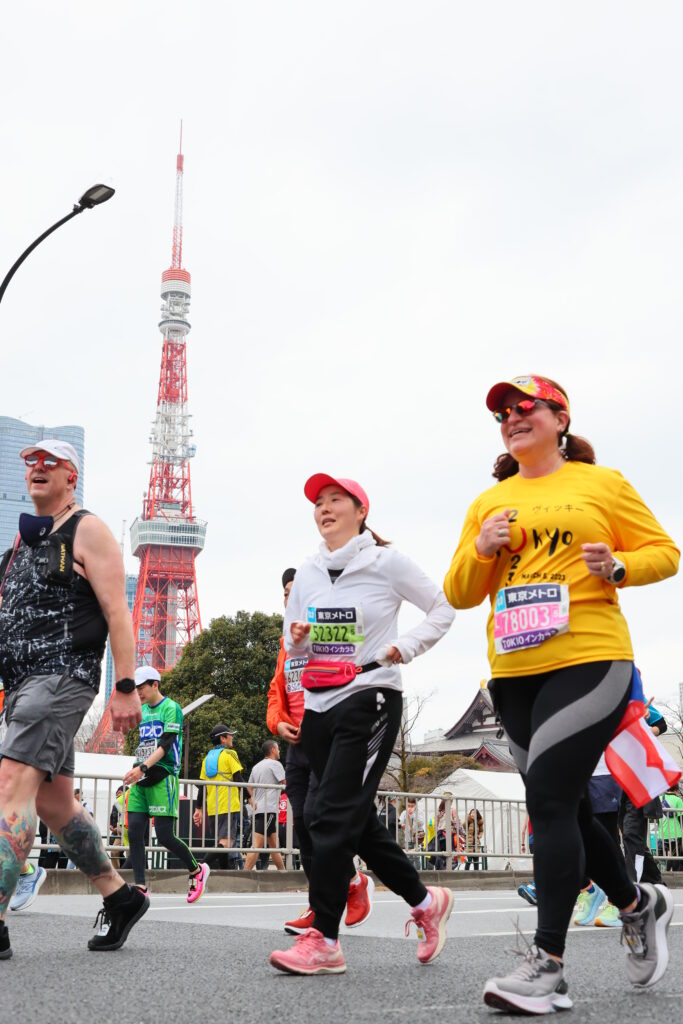
Bou: I went by myself. I was a charity runner. I was selected to run the marathon as part of Plan International Japan. [Plan International] works to empower girls through education, creating safe spaces for girls, and most importantly, work towards the prevention of forced marriages for girls.
Q: How will this experience help you in your work at Emerson?
Bou: Being able to go to Asia and get to know the country and a different culture, and being submerged and learning how to appreciate another perspective of the world, supports my work in understanding the difference of the variety of students we bring to our classrooms and program. It’s just an opportunity to really embrace a different culture. I had a first-hand experience about how you value, appreciate, and be respectful of differences around the world. Not just for Japan.
Marathons are a place where you learn and share and get to know people from around the world. Those differences, those geographical and language differences are erased completely. Although you can’t speak the same language while you’re waiting at the start line, it’s amazing how you can communicate with people who don’t speak your language. Besides running, you have nothing else in common, and you come from different parts of the world. You’re joined by the love of running and you share your happiness.
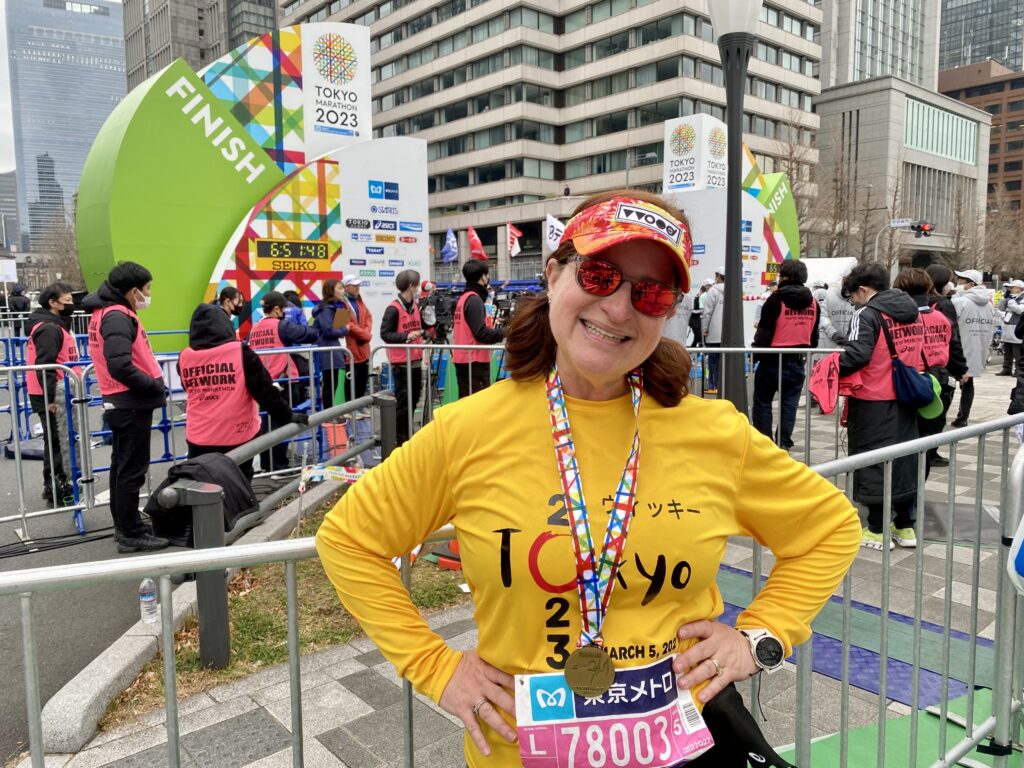
In Japan it was more amazing because the language is so different. People were approaching me with my medal at the finish line and they wanted to share their happiness with me. They just gave thumbs up and gave hugs. And people are saying, ‘Yay, we did it!’ in their language. It’s so beautiful — being able to communicate.
I think that should translate to what I do every day. It doesn’t matter where students and faculty and staff from our department come from, or what their primary language is. It’s communication, and if we share a passion for something then we can make it work. I think it translates to the job I do every day. As a department we don’t always share the same ideas, or ways of managing a conflict. We do share passion for teaching the next generation of [speech-language pathologists]. I strongly and sternly believe in that.
Q: Did you prepare for the Tokyo Marathon differently than other marathons?
Bou: Yes I did, because it’s completely different. The Tokyo Marathon has eight cutoff times throughout the course, beginning with the 3-mile marker and ending with the 23-mile marker. If you don’t make those cutoffs, you are taken out of the race. It’s brutal.
Another difference is [that] your time to complete marathon is not counted when the last person crosses the start line. Your time starts once the pistol goes off. I had 26 minutes lost before getting to the start line. I needed to run at a certain pace, otherwise I knew I’d be out of the race at any of those checkoff points. My training included long runs and cross-training, but also to make sure I could make the cutoff times. I practiced repeatedly to make sure I could make them. I made it and I was very, very happy and proud.
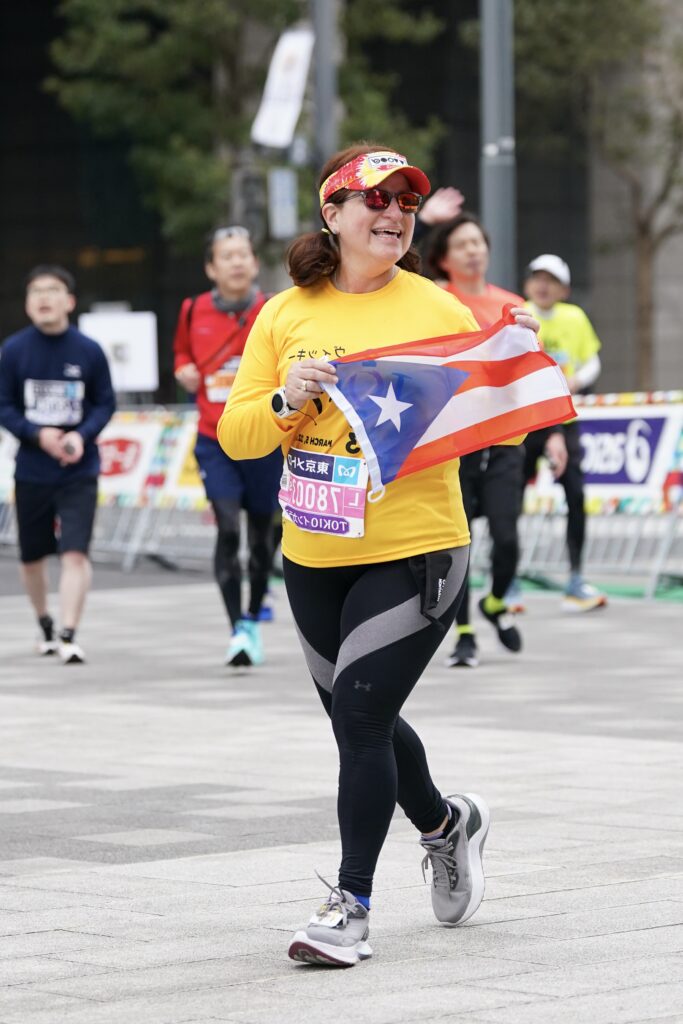
Another thing different about the Tokyo Marathon is that it is mostly loops. In New York City, you start on Staten Island and end in Manhattan. The Boston Marathon begins in Hopkinton and ends in the city. In Tokyo, you’re doing loops the whole time, so you go up one way and then go down and you see the people running behind you. As I was getting closer to the last checkoff points, I saw fewer runners so I knew they were being swept away by the bus. It was the most stressful race I’ve ever done.
Q: How fast did you?
Bou: I still don’t have my official time. I think it was around 6 hours and 8 minutes. I was very, very injured after running Boston and New York in 2021, and I had been dealing with that injury. I ran Chicago in October 2022, and ended up with another injury of my right ankle. Now I have a very, very bad right leg with injuries I haven’t fully recovered from yet.
My best time was Chicago in 2018 was five hours and three minutes. I used to be a 5-hour marathon runner. Unfortunately, my body hasn’t been able to recover after some very bad injuries. Now I’m just happy to be able to run. I don’t care about the time at this point in my life.
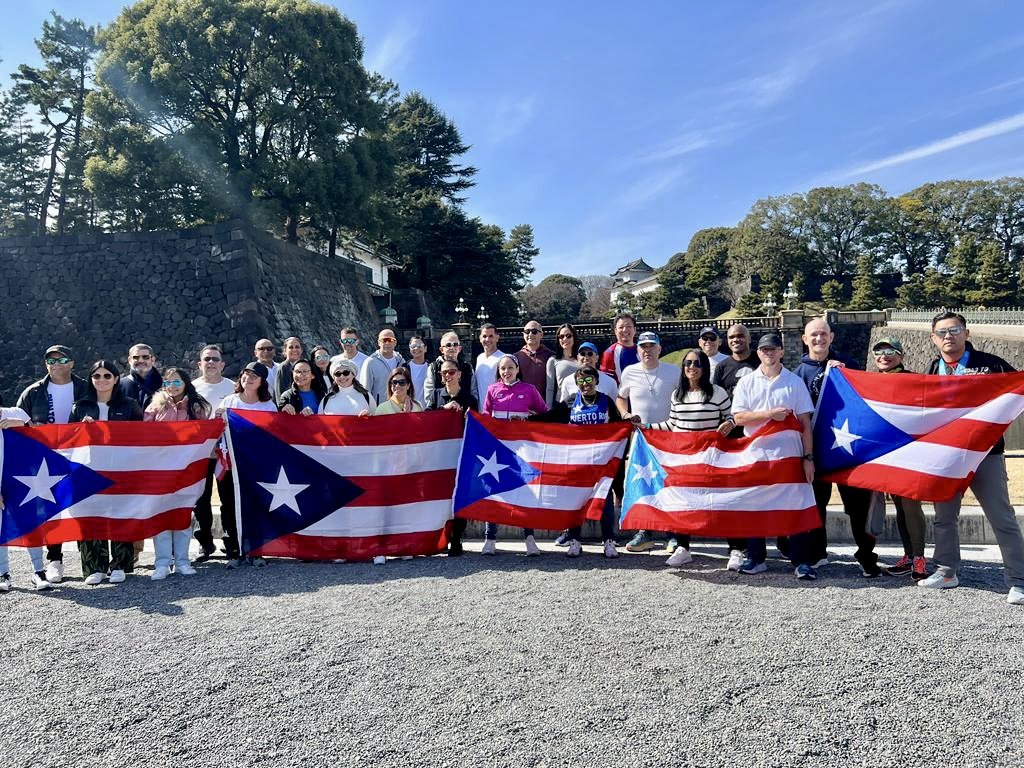
Q: How many marathons have you run and in different countries?
Bou: I did Berlin in 2019. The route was amazing, including crossing the Brandenburg Gate. The city is so rich and full of history.
Q: Were you able to do other things during your visit to Japan?
Bou: The regular tourist stuff I tried to fit in one day. The day before the race you don’t want to walk too much. We went around the city, and went to landmarks like Shibuya Crossing, Shinjuku Garden, and went around the city.
It was such an amazing experience. I was very appreciative of their culture of kindness and wanting go guide us all the time. Sometimes people couldn’t speak a word in English, but we could still communicate beautifully.
I’d just like to say how supportive Emerson is of my passion for running. I have to say that makes me a better person. It makes me a better professor. It makes me a better administrator. When you are supported in what you love to do you are a better person in whatever activities and every day duties you have to do. I would encourage everyone for the sake of health, physically and mentally, to find something they love as an additional passion beside work. We love work, but it’s extremely important to have something you’re passionate about that you love and enjoy.
Categories